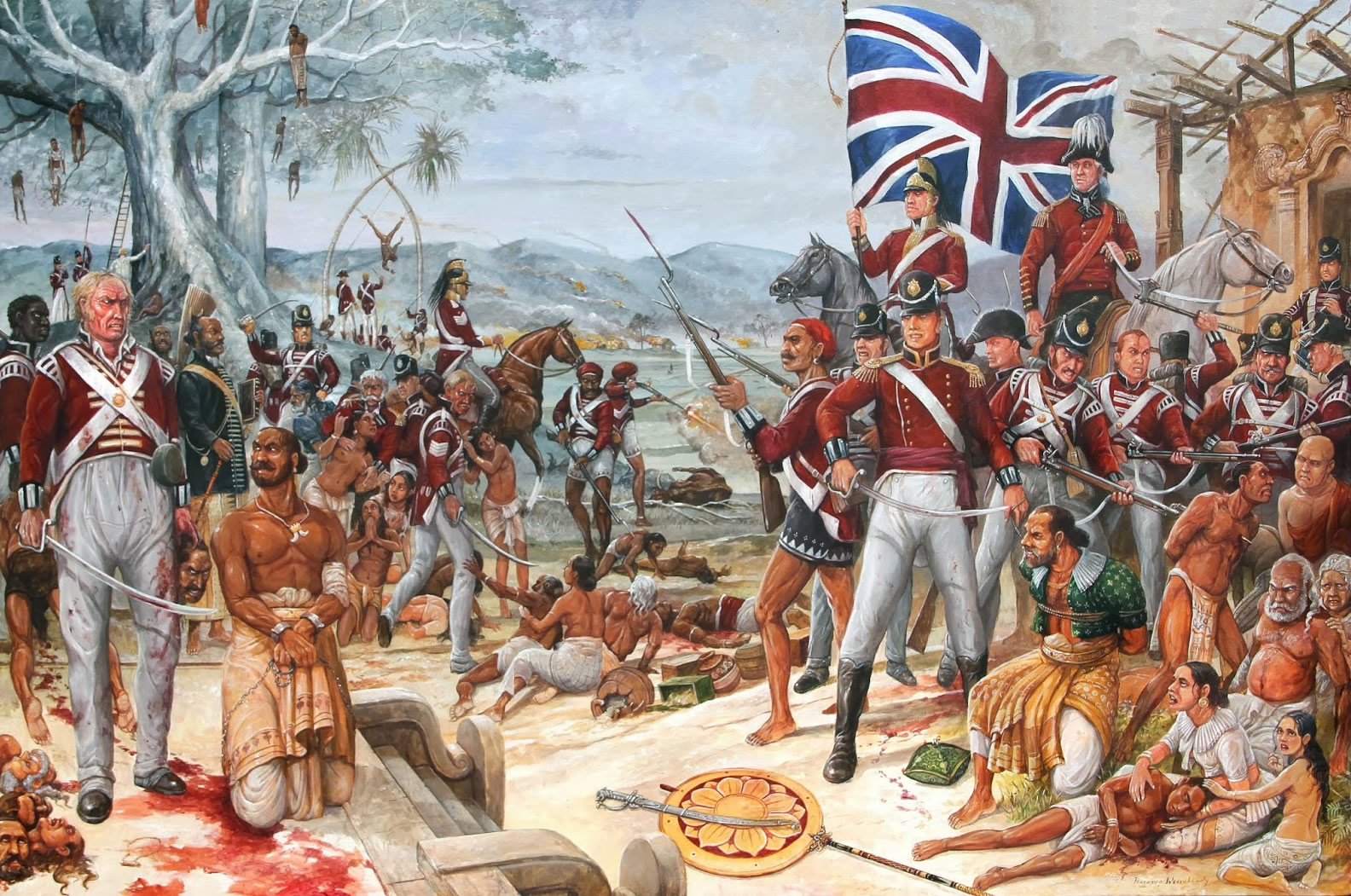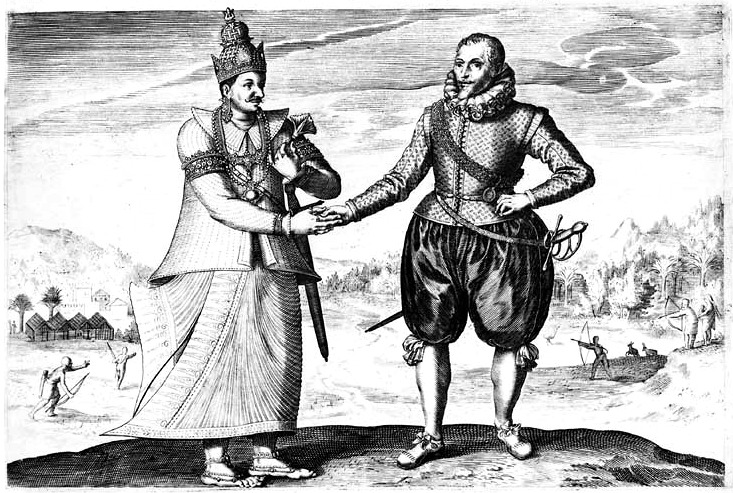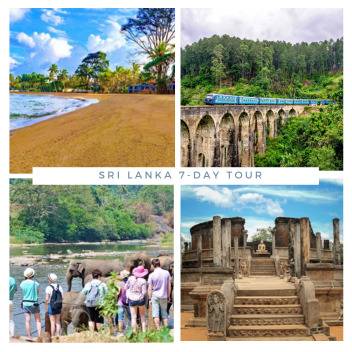British Ceylon, Annexation Of Kandy To The British Crown
British Ceylon, Annexation of Kandy to the British Crown
The intervention of the English in Sri Lanka affairs
The English government of the Maritime Provinces was indeed very anxious from the beginning to reduce the kingdom of Kandy. The embassies of Andrews in 1795 and 1796, of Macdowall in 1800, the expedition of 1893 and its sequel, and the history of the dealings of the Portuguese and the Dutch with the Kings of Kandy which was being studied by English officials in London and in Colombo, showed them that no reliance could be placed on a mere paper treaty. On the other hand, the English government was not prepared to use force in the face of public opinion in England and India. Accordingly, the English in Ceylon were for reducing the kingdom to terms by means of the chiefs. This was what north attempted with Pilima Talavve and what D’Oyly was preparing for under the direction of Brownrigg.
This long-looked-for day now seemed to have dawned. The confusion and disorder in the capital seemed to Brownrigg and D’Oyly a suitable opportunity for carrying out their policy. Accordingly, Brownrigg received Ehelepola unofficially at his residence ‘Mount Lavinia’ with the most distinguished kindness and respect. On the one-sided representations of the rebel against his king, Brownrigg promised him favour and protection. The idea of sending an expedition to Kandy seemed feasible; the rebellious minister supplied a plan of operations against his country, and Brownrigg hastened to get together and equip the necessary forces.
The first division set out from Colombo with Ehelepola and the other refugees in December 1814 and reached Hanwella where it remained till January awaiting further reinforcement from Madras. The reinforcement did not come, and the division advanced to Sitavaka. D’Oyly joined the division to negotiate with the dissatisfied chiefs. The army remained encamped till 10th January, awaiting the success of D’Oyly attempts. On 10th January some of Ehelepola’s adherents had an encounter with the loyalists, ten of whom pursued the spies across the Sita-Ganga. Within sight of the English camp, and burnt a cottage in which they had taken shelter. D’Oyly, who was the governor’s commissary, immediately gave orders to advance, and the division crossed the river and marched to Ruvanvella, where the governor arrived on the 12th.
A proclamation dated 10th January was drawn up, declaring war. It was translated into Sinhalese, as its principal object was to invite the chiefs to join the English standard. On the 13th the proclamation was circulated in the Kandyan kingdom. This proclamation, which was the work of the same hand that afterwards drew up the well-known Act of Settlement of Conversion. It rehearsed the reasons for the step and declared that the English were invited to take this step by the unanimous voice of the Kandyan kingdom.
In spite of the proclamation, the people fled before the advance of the troops, and though some headmen and people joined, by far the great majority refrained from supporting the expedition. But there was no opposition. Molligoda and the other chiefs did not openly join the expedition, but facilitated supplies and promised adhesion.
The king meanwhile could not believe that the British would dare to come to Kandy after their experience of 1803. When the news was brought that the army had crossed the Sita-Ganga, he ordered the messenger’s head to be struck off on the spot. Likewise, when he was told that his few followers were routed in the Seven Korales, the messenger was impaled. But when he learned that his chiefs deserting him one after another, he lost heart fled from the capital.
On the very day of the king’s flight, the governor issued a proclamation that the ‘provinces of the Three and Four Krales and Sabaragamuwa with all their royal and dependencies were become and were declared to be integral parts of the British possessions in the island of Ceylon and were received under the sovereignty of His Majesty the King of Great Britain.’
On the 14th Feb, a British division entered and took possession of the town of Kandy, the governor has issued a proclamation repeating the promises of 10th January. From Kandy detachment were sent with Ehelepola to capture the king. His hiding place was soon discovered, and the unfortunate monarch was bound, plundered of his valuables, and dragged away.

The role of Ehelepola
On the death of two sons and the two daughters born to the king of two queens, the daughters of Gampola Deviyo, Sri Vikrama married two other queens, the daughters of Degal Sami. The nuptials were celebrated at Kandy, and all the chiefs except Ehelepola made the customary presents. Meanwhile, Ehelepola returned to Sabaragamuwa and sought to enrich himself in order to follow in the footsteps of Pilima Talavve. He hacked and haled the inhabitants of his province, not sparing even those of his own class.
Thus when Elpata Nilame died, he seized all his valuables, and when the widow protested, he sent information to the king that the dead man’s property was concealed. And acting presumably on the king’s orders, he turned the widow and children out of house and home and tortured the dependants to discover the property. These iniquities were attributed to the king, and the indignant people sent messages to D’Oyly that, ‘if the English came, every man of them would join’. Ehelepola had not accounted to the king for the revenue from arecanut, and an Indian merchant who had come to purchase arecanut in Sabaragamuva complained to the king that he had been defrauded of his money.
Upon these complaints, the king summoned the adigar to Kandy. Once before, Ehelepola had been summoned to appear before the king, on foot, without tomtoms or palanquins, to answer the charge of having caused two Korales to be stabbed to death. On that occasion he was saved by the intervention of another chief; but now, knowing that his adversary Molligoda, the second adigar, was in favour with the king, he saw what was in store for him and excused him from responding to the king’s summons. It is said that his letter to the king was tampered with by Molligoda. In any case, the king was incensed and deprived him of his office, seized his wife and children and hostages for his appearance at court and appointed Molligoda first adigar.
Ehelepola who had been in constant communication with D’Oyly then raised the standard of rebellion. In January 1814 he offered to place the Sabaragamuwa Disavani under the English. Brownrigg was not willing to accept the offer. Hitherto the British showed sympathy with the insurrection as Ehelepola was the executive head of the government and had represented that he and his supporters were trying to resist the unjust exactions of the king. But his disposition placed matters on a different footing. He was now a rebel minister, and Brownrigg could not give or promise assistance against a neighbouring monarch-a thing he had been expressly forbidden to do.
It was true that Ehelepola still tried to make out that he was only the champion of the people and had risen in defence of custom, namely to resist innovations and exaction not sanctioned by custom. But it was clear to the British that though there was much disaffection, the real cause of the revolt was a personal grievance of Ehelepola. Accordingly, though the ex-adigar and his henchman Ekneligoda begged for a British force, however small, or at least for some munitions, the governor persisted in his refusal. It was apparent that if Ehelepola had the support of other chiefs and provinces, as he claimed to have, there was little need of British help; that the reason why he was so eager for British help was to win support by making it appear to the people that his revolt had the countenance of the British.
Meanwhile, the king took action. He called upon the people of five ratas to support him against Ehelepola and dispatched Molligoda to bring the traitors in the chain to Kandy. In May, Molligoda came down in force against the rebels who were at Ruvanvella. Ehelepola and his supporters still kept on asking for at least “a few soldiers”, offering to deliver their “country and all its profits, preserving to themselves their rank, respect and religion”. Without the active intervention of the British the rebellion had no chance and actually fizzled out. Ehelepola’s men turned fled to their homes. To Governor’s question why they took up arms against the king, they declared that it was because of the king’s wrong and injustices. When he asked them to give an instance of the king’s injustice, they were not able to give any that could impress the British. But Ehelepola was offered asylum in British territory, and the erstwhile first adigar definitely passed under the British allegiance.
Molligoda advanced on Sabaragamuwa, dispersed the rebels and took 47 prisoners, whom the king ordered to be impaled. When the irate monarch learnt that Ehelepola had not only gone over to the British but was machinating against him, he wreaked his vengeance on the family of the unfortunate rebel. According to Kandyan custom, an adigar’s relatives have a toe in Kandy when the minister is away, as hostages for the official’s good behaviour. And every chief who flees from the royal wrath knows that his kith and kin will be punished. Accordingly, Ehelepola’s wife and children, his brother and family were put to death in a most revolting manner.
Incensed with the English for giving refuge to a rebel, the king ordered all those who were known to be in communication with the British to be put to death. Thus Pusvella, Disava of Nuwara Kalaviya, the monk Karatota Kuda monk and several others were put to death. He then dispatched Molligoda to punish the people of the seven Korales who had once rebelled against the king and who were known to be supporters of the English. Seventy men were said to have been executed.
The unpopularity of Sri Vikrama Rajasinghe
On 11th March 1812, Lieutenant-General Robert Brownrigg assumed the government. His regime was noted especially for the annexation of the kingdom of Kandy to the English Crown. In the Maritime Provinces, he established a Royal Botanical Garden in Slave Island. A garden for botanical purposes had already been begun at Ortafula on 1st February 1799, wuth Joseph Joinville as curator. But now on the recommendation of Sir Alexander Johnston, a more ambitious scheme was started on seven acres of land in Slave Island under William Kerr, sent out from England for the purpose. Brownrigg also made a government monopoly of tobacco, set up a provincial court at Kalpitiya, abolished the two divisions of the Supreme Court and fixed the exchange of the rix-dollar.
The king’s hostility
The state of affairs in the Sinhalese kingdom gave great concern to the governor. A rumour in the low-country stated that the king was preparing an attack on the English whom he looked upon as the supporters of his recalcitrant disavas. Europeans were said to have visited Kandy and the king was reported to be waiting for a French fleet, on the appearance of which he would fall upon the Maritime Provinces. The king’s hostility to the English had increased owing to the overtures which his chiefs were in the habit of making to the English, whenever they were taken to task by him.
D’Oyly’s contribution
One of the English civil servants, John D’Oyly, agent of revenue in Colombo, who had acquired a surprising mastery of the Sinhalese language, spoken and written, and who was now chief translator to the government, was carrying on an extensive system of spying on Kandy. He was in communication with practically every leading Kandyan chief hostile to the King. He was given information about the Kandyan affairs by spies and messengers, mostly villagers, low-country headmen, Kandyans, monks and moor men.
Ehelepola
Meanwhile, Pilima Talavve was disposed from the adigarship and the position was given to a man who also tried to supplant the king, but only succeeded in bringing about his sovereign’s downfall and his own. This was Ehelepola, disava of Sabaragamuva. He belonged to the same family and faction as Pilima Talavve. The king disliked him but did not dare to disregard the wishes of the chiefs who desired Ehelepola. He was indeed the foremost man in the realm after Pilima Talavve; several of his relatives were disavas of provinces, and he became the leader of the anti-Nayakakar faction. To counteract his power, the king chose as second adigar a chief who was a well-known opponent of Ehelepola, namely Molligoda disava of the four Korales.
The king’s unpopularity
The king, who knew that he could not rely on the loyalty of his chiefs, found that his safety lay in punishing them on the first hint of treason, with the result that such charges were frequently brought against chiefs by their adversaries. In 1812, Mampitiya, the natural son of Kirtisri, was accused of treason and put to death. The king’s suspicions extended even to the people of the disavanis bordering on English territory, and as he now sought to separate the loyal districts of Dumbara, Hewaheta, Kotmale and Valapane from the rest of his realms, he ordered all persons, not natives of those districts, even monks and Muslims, to quit them at once. Thus families had to be broken up, and much disaffection was aroused.
The suspicion and ill-will of the king greatly incensed the chiefs who had all along been opposed to the Nayakars. Many chiefs were indebted to the king’s relatives; Molligoda’s debt alone amounted to six thousand pagodas. The king also tried to curb their power by dividing the disavanis, by changing the disava, and above all by bringing them to book when they harassed the people. The chiefs, therefore, were very eager for a change of dynasty and set up the people against the king and carried on intrigues with the English.
The character of the king
It must not be supposed, however, that Sri Vikrama was a bad king. He was undoubtedly a well-meaning man who was quite anxious to do his duty by his people. His quarrels were with the disavas, and one of the chief reasons why the disavas were so hostile to him was that he evinced a determination to protect the people from the vexations of the disavas who were the real tyrants. It was the disavas who prevented him from redressing the wrongs of the people; it was the disavas who set the people against him by quoting his authority for their tyrannies.






